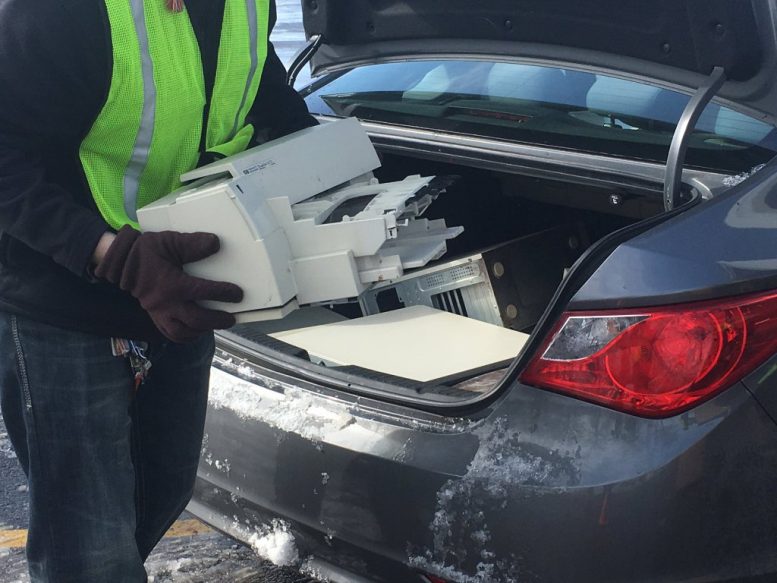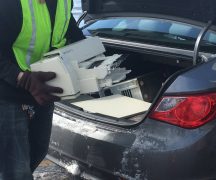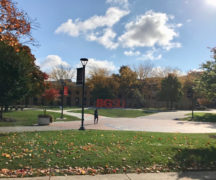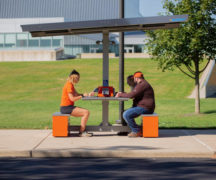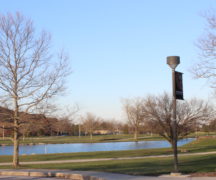By DAVID DUPONT
BG Independent News
The Office of Campus Sustainability is offering residents the opportunity to clear out some clutter and help clean up the environment at the same time.
Nick Hennessey, the campus sustainability manager, is even thinking it’s time to rid himself of those big old speakers in his basement.
On Saturday, March 13, the office is hosting a free, no-contact electronics recycling drive for Bowling Green residents in the Slater Family Ice Arena parking lot, off Mercer Road. The drive is from 9 a.m. to 1 p.m.
People can drive in, drop off electronic waste, and drive out.
The drive will accept: computers, laptops, monitors, printers, fax machines, information technology office equipment, wires, cables and cords, light ballasts, cellphones and telephones, cameras, audio visual equipment, video game consoles, VCR, DVD and Blu-Ray players, household appliances, electronic tools, batteries of all kinds, fans and more.
Not accepted are tube televisions and CRT monitors. There are options for paying someone to take these and recycle them, he said.
All this stuff, Hennessey said, clogs up landfills and emits toxic wastes.
The campus sustainability cites reports that more than 50 million tons of electronic waste is produced every year in the United States, most of it ending up in landfills.
In landfills, electronic devices and scrap materials release toxic chemicals and heavy metals, such as mercury and lithium. Those pollutants seep into groundwater, and can poison land and sea animals.
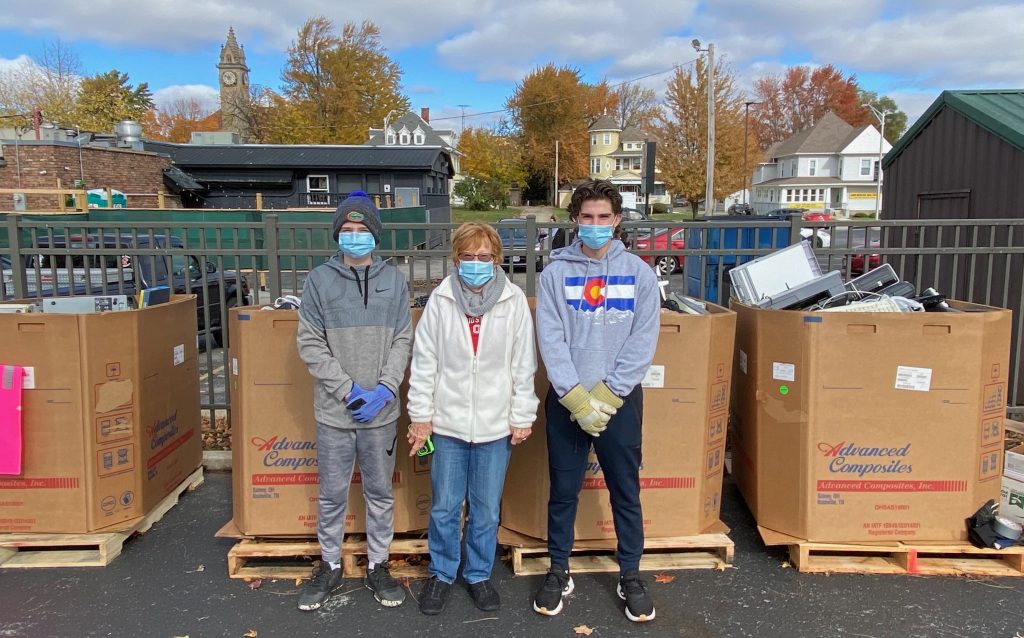
The drive is working with AIM Ecycling, a certified R2 recycling firm.
Given the rigorous auditing needed to maintain the certification, “it gives you assurance that this is a company that operates sustainably and is the type of company we want to do business with,” Hennessey said. “A 100 percent of electronics we give them are recycled.”
With AIM Ecycling he knows the electronic waste will not be shipped overseas and cause health problems for the people who disassemble it.
The company works both with BGSU campus sustainability program and with the university’s Information Technology Services.
The sustainability office runs regular recycling drives for campus entities. They also occasionally will hold drives that are open to the community.
BGSU is now engaged in a “race-to-zero-waste” challenge with other campuses leading up to Earth Month in April. And the drive will boost their competitveness.
The pandemic has had mixed impacts on the Office of Campus Sustainability.
Certainly with residence hall occupancy at about 60 percent, there’s less waste coming. Still the education efforts to make sure students know what goes in recycling and what goes into the trash continue.
Fewer people are also working on campus, so that cuts down on the recycling stream, but also cuts down on the waste stream.
And there’s also been a reduction in emissions.
Electric and water use went down. “These are all things that are part of our mission. We don’t want that to go away forever.”
But the pandemic put service projects on hold for the most part. The Friday Night Lights initiative, where students went around campus turning off lights in offices has been hiatus.
The Restore where an assortment of leftover but still usable materials and items has to limit the number of shoppers in the shop.
And virtual activities will have to take the place of the Earth Fair in April as well as all the other Earth Week activities. “We’re not able to deliver the education in the same. But after a year of experience at this, we’ve kind of got our game together to do things virtually.”
Activities will include virtual panel presentations, individual activities such as a free one-day bike rental, streaming movies on demand, and free items from the Restore.
“When you look at all the data that goes into our emissions calculation and carbon footprint, we will have a lower carbon footprint for 2020, somewhat lower, and for the fiscal year ’21 we’ll probably be dipped a bit as well because of all those things,” Hennessey said. “What can we learn from that? We’re continually learning ways to be energy efficient.”
For example, telecommuting to some extent is probably here to stay.
The less activity on campus also has given crews the chance to install more LED lighting particularly outside.
“There have been opportunities,” he said, “and there have challenges.”

